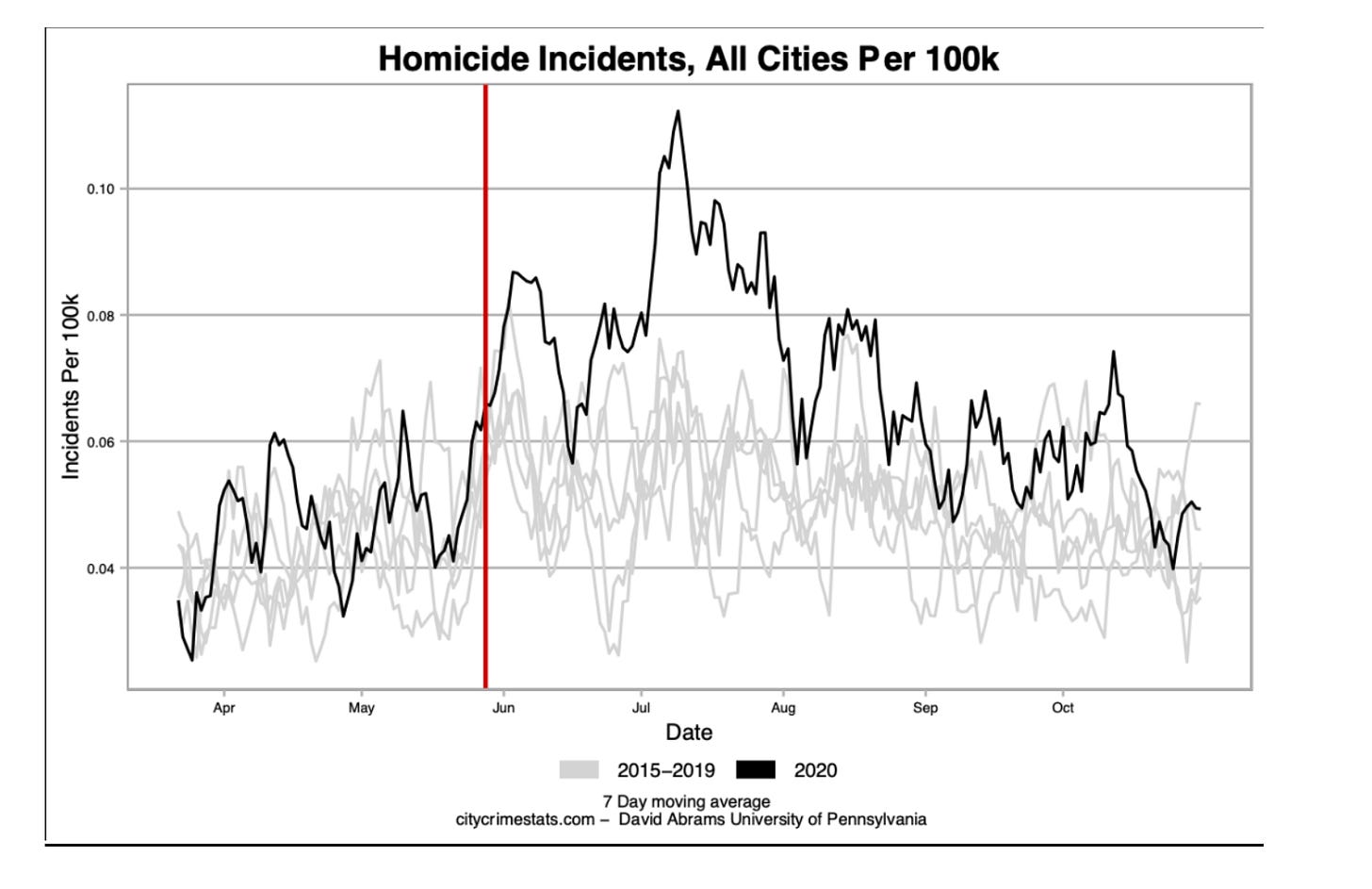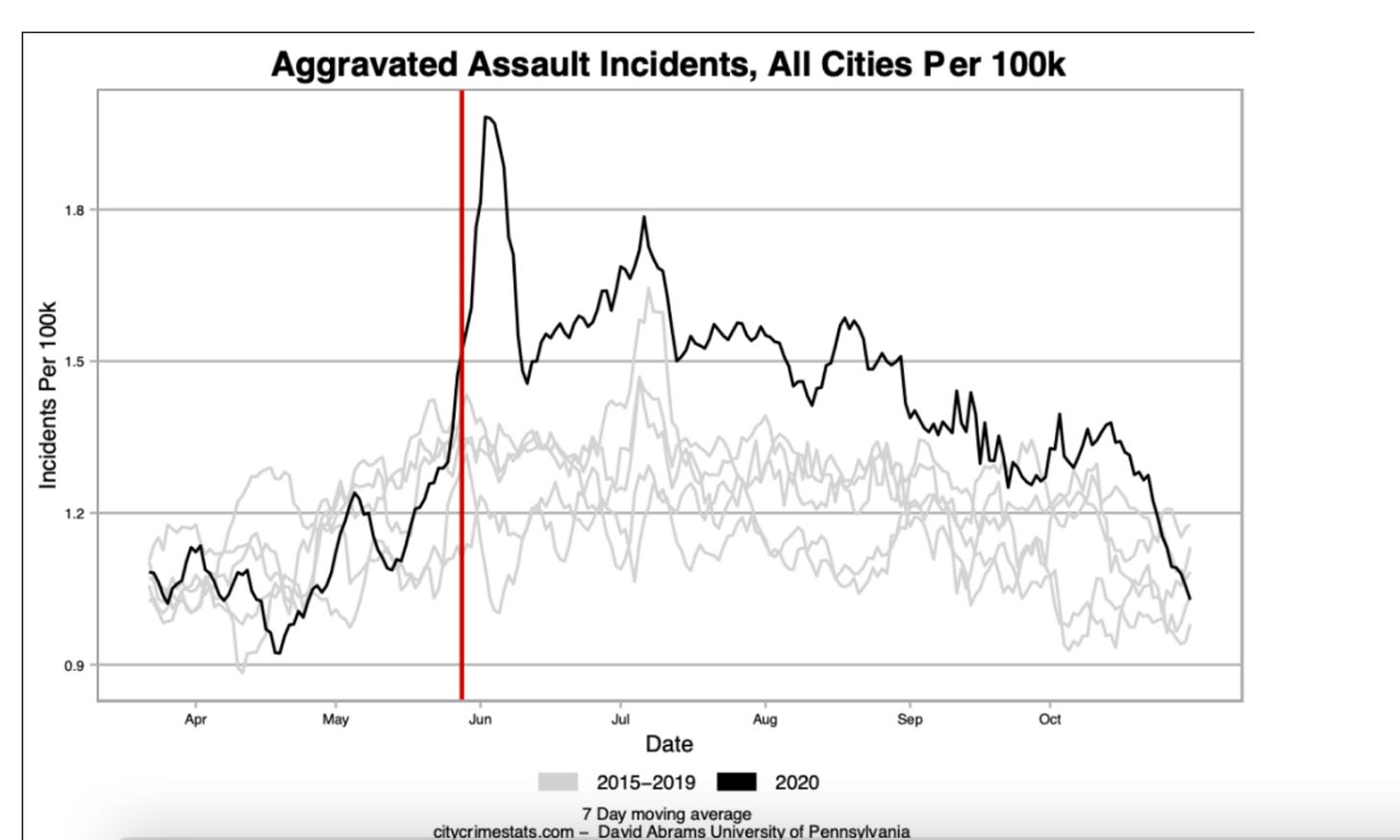Ancient primitives — or as we now call them, “Indigenous people whose land we stole” — believed in talismans, voodoo, rain dances and other versions of “A preceded B, so A caused B.” Today, we consider such reasoning classic fallacy. Except at The New York Times.
First, you need to understand that the Times is no longer a newspaper, but more of a shaman. The paper used to report news. Anyone reading it for information these days might as well pull into a gas station and expect the nice man in a crisp white shirt to dash out and pump his gas.
Much like a Starfish tuna factory, the news comes in, then has to be cleaned, chopped up, soaked in oil and tightly packed into a tin can. If you peered into the Times’ back room, you’d find hundreds of woke scriveners repacking the news to fit the narrative.
Second, an urgent cleanup operation was needed to explain the paroxysm of violence that followed 2020’s anti-cop mania pushed at places like the Times. It simply could not stand to have people imagine that revering criminals while anathematizing the police would have any effect on the crime rate.
No, that wouldn’t do. The facts had to be retrofitted into an alternative narrative. What was the best backup explanation? The pandemic!
Attributing the massive crime wave to the pandemic solved two problems that would have arisen had the Times simply reported the facts: the upsurge in black crime, and the Times’ active encouragement of such.
Unfortunately, doing a rain dance to bring rain is quantum mechanics compared to the Times’ cause-and-effect theory about “The Pandemic” inciting the post-George Floyd violence.
Here are the facts.
During the first few months of the pandemic, violent crime plummeted everywhere. You couldn’t have missed it. The Washington Post, Politico, Voice of America, Cambridge University, and on and on and on — even the Times itself! — reported that violent crime had virtually disappeared in cities around the world due to the COVID shutdowns.
And then on May 25, a fentanyl addict with a bad ticker died in police custody in Minneapolis, whereupon the de-policing demands of Black Lives Matter swept the nation with the active encouragement of all organs of elite liberal opinion, especially the Times.
Cops, the only people who seem to really believe “black lives matter,” risking their lives to bring safety to dangerous neighborhoods, were viciously slandered and kneecapped at every turn. Again, especially by the Times.
You’ll never guess what happened next.
After going into free fall during the first 10 weeks of the pandemic, homicides and aggravated assaults in the U.S. rose by about 35% from Floyd’s death to the end of June. Burglaries, mostly commercial, shot up by an eye-popping 190% the last week of May — the height of looting during the “mostly peaceful protests.”
Other countries, also affected by the pandemic, saw no such rise in violent crime.
Continue reading…
From Ann Coulter, here.


